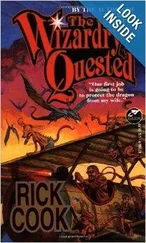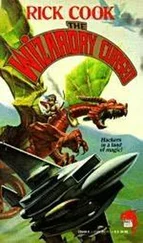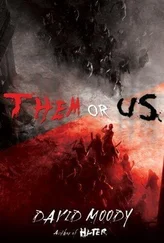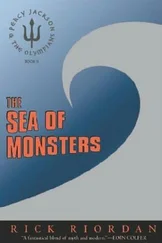“I knew it,” Annabel says. “It’s because he’s black. Everyone else gets to have sex on this show, but he doesn’t get to have sex just because he’s black. There’s never a shot of just black characters in a store or anything or discussing politics. They’re always the mutants.”
“Annabel!” Max says, who, though he is a strident critic of television culture and its seductions, is the one paying the closest attention. The Reverend Duffy, who has been known to use The Werewolves of Fairfield County in his sermons, is soundly sleeping. And Tyrone, who has said not a word about what’s going on, has been concentrating on the book in his hands. “Anyway, Edwin is black and he’s not a werewolf.”
Not yet, anyway.
The transformation, one of the things that initially set apart The Werewolves of Fairfield County from other programs, is by now so predictable that it’s difficult to bring anything new to it. The transformation of man into wolf, here in the fourth season, is just digital nonsense. The same makeup morphing through the same predictable stages. And yet each season, Christine Katz, the producer of The Werewolves of Fairfield County, has tried to hold in reserve a little improvement in the matter of the transformation. The hard-core fans of the program know to wait for the razzle-dazzle of this moment of improved metamorphosis. Sunday, during the Thanksgiving episode, it turns out, is the day of something new. So: Bennett Adams, just like his mother, Felicia, is a werewolf, and it is the moment of orgasm that has brought it out in him. The uninformed viewer will perhaps not be certain it’s an orgasm, but still. The scene is powerful, it’s almost garish, the way he arches up off the reclining, sweetly moaning body of Merry Burns and stretches up his arms, because it’s his virginity that he’s casting off, too, his innocence, and of course the irony of the moment of any deflowering is that the body always knows what it’s doing, it knows and loves the moment of its new awareness, as if it has always known; the body loves its animal exhibitions, and this is especially true of poor Bennett Adams, who is not only knowing and loving the animal aspect of his splattering seed, but just as he comes, the bristles of fur seem to burst out on his face instantly, not gradually, as in all the traditional werewolf programming of the fifties and sixties, but immediately. And that’s the great new effect in this episode. His cry is his own voice and the voice of the wolf simultaneously. The one is an aspect of the other, and then, again immediately, his shirt, his preppy polo shirt, which he’s still wearing at the commencement of the love scene, the polo shirt that his mother actually ironed for him, shreds like confetti, and you can see the threads hanging off of him, others flying out into the room. His old body is a piñata giving way to the new. He knows that something awful has happened, that he is not just a boy who has known the inside of a girl, and he knows, all at once, that he’s a thing, not a boy but a thing, and as a thing he should flee, and that the proper place for all animals is in the state of nature’s wildness, which is not in some mansion somewhere just up the street from where Martha Moxley used to live. He doesn’t even have his pants on, of course, he has nothing on, but he’s a wolf, and nakedness is not a shameful thing to a werewolf, and he goes bounding off the bed and down the stairs and into the thick of the party, which at this somewhat late hour has given way to intoxicated lassitude. It’s not the giddy carnival that we usually see depicted on television but is, rather, a lazy, fumbling, inert affair where boys who are too drunk to perform make passes at girls who are too drunk to refuse, and the werewolf bounds past all of them, and the few who are awake or alert enough to understand that they have just seen something supernatural rub their eyes, looking, nonetheless, unsurprised.
Vic Freese’s wife, Lise, says, during the commercial break, “You know, I can’t stand it that you’re suddenly taking notes during the entire show. Couldn’t we just sit here and watch the show? You used to watch the show because it was fun to watch, and now you just sit here and you take notes, like television is nothing but an opportunity to work for you. If we can’t sit together and have a quiet night together, like we used to do, then what’s the point? Now it’s all just the agency, agency, agency, agency, and how everybody is jealous of your success and how everybody wants to steal that teenage slut client away from you. But what about your kids, and what about me? I liked it better when you were a failure, if you want to know the truth. I liked it better when you used to say that work was neurotic and all the people at the agency were neurotic and never had any fun in their lives and they were all going to die young. Are you going to die young, too? Now that you’re mister codirector of the television division? Or are you just going to sit there taking notes and not even listen to me when I’m talking to you? You’re going to pretend I’m not even talking to you? I don’t really care if I wake the kids up. I want the guy I dated and the guy I married. He was sweet and gentle and would play miniature golf, and I think the kids want that guy, too, not some guy who never comes home or who comes home after they’re already asleep, and then when he does come home, all he does is turn on the television and start taking notes and blustering into his dictating machine. Is that what you want? Is that what you really want, to be like that? Forget it, I don’t even care what happens, I don’t care if the werewolf gets the girl, and I don’t care what happens to your miniseries. I’m going to bed.”
The director of the Duffy family documentary pans again over the assembled, as the final four minutes of the show begin. She’s part of her own melodrama now. Though it is so far unspoken. She has her own multigenerational secret, one that she has not announced to the American family, which lounges around her in its American-family tableau. It’s a melancholy secret, to be sure, an unwanted secret, and yet perhaps a hopeful secret, too, this secret of conception. Even in such a fraught moment, when her brother’s future is uncertain and the election is uncertain and her employment situation is a little uncertain, the chromosome-hauling spermatozoan will, given the right conditions, and notwithstanding the frequent impotence of the father, nonetheless occasionally perform its endurance-swimming trick and crash through the wall of the ovum, even if the birth control pill is said to be 99 percent effective. It’s melancholy that Thaddeus isn’t answering his cell phone, that he has apparently decamped for California, or that’s the rumor, before going off to Morocco to shoot his swashbuckling epic, and she doesn’t even know how to tell him about the spermatozoan and its accomplished mission. But because she hasn’t told him, hasn’t told anyone yet about her idea that she just might keep the little fetus with the action film- star daddy, it seems like nothing but good news, as if somehow it’s going to turn out all right for all the generations of the family; somehow they need one another, even if they can’t stand one another, and the little fetus needs everyone to give him or her a break, give him or her a while to turn into an actual person rather than just the potential of personhood. Love is best expressed as the likelihood of a little mixed-race baby for now, she thinks, over the forms of half-conscious family members in the living room, while ministering with her camera.
It’s going to be an amazing documentary, probably much better than her script about the wife of the Marquis de Sade, and one thing about it that will revolutionize filmmaking is the pacing. Instead of a lot of stuff happening all the time, the newly pregnant filmmaker has decided on a static approach, as in avant-garde film. There are going to be large patches of film where nothing much happens at all. The film will have mimetic aspirations. It will attempt to re-create the pacing of real family life, the long periods between revelation in which the manipulative and semifascist plot structure of Hollywood and contemporary television serial narratives will have no place. That fascist kind of work creates attention deficit disorder in audiences, and it probably creates that spike in the rates of autism that everybody talks about, too. And that’s why the newly pregnant filmmaker lingers on the sleeping form of the Reverend Russell Duffy, who can be expected to sleep through almost any after-dinner television programming. He always expresses strong opinions about what they watch: no on comedies, no on teen films, yes on Provence or Tuscany and anything with a classical music theme. But having expressed an interest in content, the reverend cannot stay awake longer than fifteen minutes, and often the volume has to be turned up so that everyone can hear over his snoring.
Читать дальше












